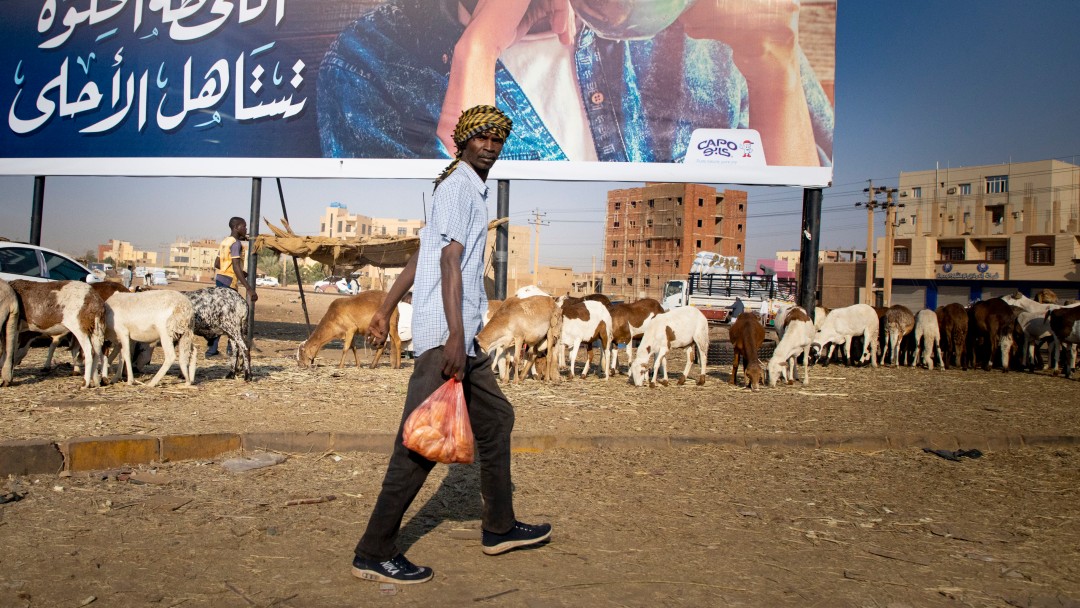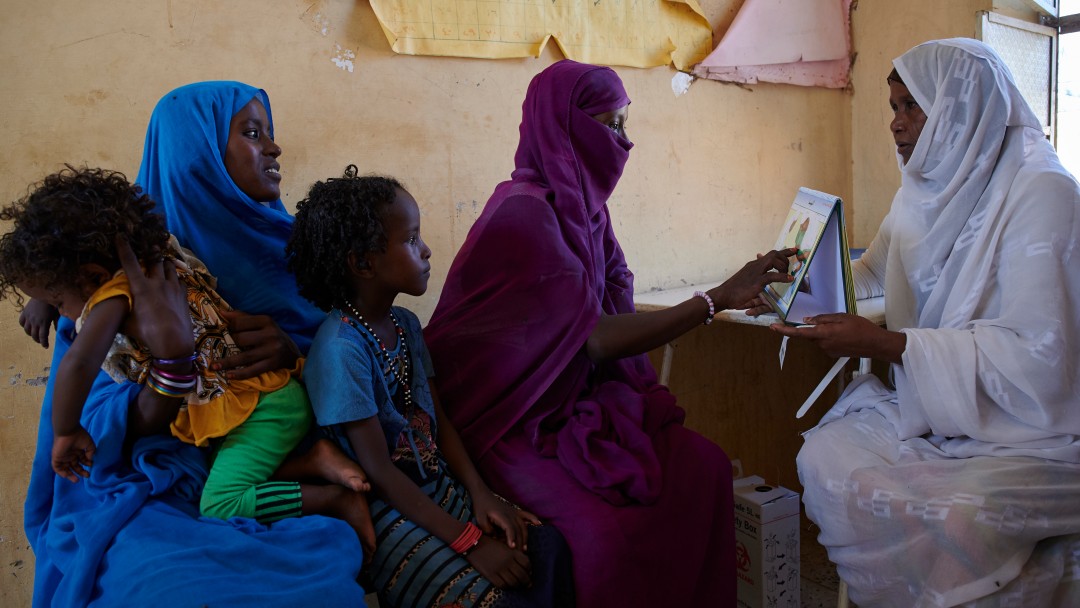News from 2021-02-15 / KfW Development Bank
Sudan – important and rapid support for a country in transition

In 2020, the German government resumed development cooperation with Sudan. The challenges are enormous, and necessary reforms are being accompanied by the establishment of a social safety net. KfW has made a total of EUR 100 million available for three programmes from BMZ funds until the end of January 2021.
Since the collapse of the regime under Umar al-Bashir in November 2019, Sudan has been in a phase of upheaval. After 30 years of dictatorship and mismanagement, the population is hoping for peace, good governance and economic recovery. Young people in particular have high expectations of the transitional government under Abdalla Hamdok and hope that their living conditions will improve quickly. The government is making enormous reform efforts, but the economic and social challenges are huge and support for the government is on a fragile ground.
Multilateral organizations and development partners, including Germany and the EU, have joined forces to support the country in its transition process. Not least because Sudan is also of great political importance for stability in the Horn of Africa, North Africa and the Sahel, the German parliament decided in February 2020 to officially resume development cooperation with the Sudanese government, which had been interrupted for a long time. This also set the course for KfW Development Bank to expand its engagement in Sudan.
For several years now, KfW has been working on behalf of the German Federal Government with the children's relief organization UNICEF and non-governmental organizations to improve the situation of children and the nutritional situation of the people. Since 2017, access to water and sanitation has been improved for 42,000 people, 15,000 children have benefited from the expansion of schools and over 13,000 children on the run have received psychosocial support.

The task now is to support the fragile transition process and the peace efforts of the government. The government must tackle urgent economic reforms, on the one hand to reduce the enormous debt burden and high inflation, and on the other hand to noticeably improve the living conditions of the population. Reconciling both goals is a tricky task. Due to the economic consequences of the COVID-19 pandemic and the extreme floods in autumn 2020, many people have lost their livelihood and income.
In order to cushion these economic difficulties for the population, the reforms are to be accompanied by the establishment of a social safety net. To this end, KfW has provided a total of EUR 100 million for three programmes from BMZ funds until the end of January 2021.
The Sudan Family Support Program (SFSP) is at the centre of the support. Over the next two years, this programme aims to reach up to 80% of the Sudanese population with direct transfer payments to the families. To this end, KfW Development Bank is contributing EUR 60 million, together with numerous other international donors, to the "Sudan Transition and Recovery Support" (STARS) trust fund, which is managed by the World Bank and implemented in cooperation with the Sudanese Government.
The SFSP will initially be launched in and around the capital Khartoum. To ensure that the rural regions of Sudan are also supported promptly, KfW is also financing a rural pilot of the SFSP in the particularly disadvantaged regions of North and West Darfur with EUR 20 million from BMZ. After years of armed fighting, the economic hardship there is particularly pronounced. Families lack food, basic services and economic prospects. The measures are implemented on the ground by the World Food Programme (WFP), which cooperates closely with the Sudanese government.
Beyond the current challenges, there is a particularly great and structural need for support among mothers and small children in Sudan: almost 90% of all children do not receive the recommended minimum amount of food, 30% of all mothers are also malnourished - the long-term consequences for the children's development are serious. On behalf of BMZ, KfW is therefore making available a further EUR 20 million to support the establishment of a "1,000 Days Pro-gramme" to provide social security for mothers and children in the first 1,000 days of their lives, which are particularly important for their development. The programme is part of the BMZ's Corona Immediate Programme. It was developed jointly by KfW and UNICEF and is the first of its kind in Sudan. Around 50,000 mothers or pregnant women and their - estimated 50,000 - children are to receive transfer payments to buy food, hygiene articles and medicine. In addition, the (prospective) mothers will be trained in healthy nutrition and hygiene. Eligible women and mothers are registered in health centres and receive personalised bank cards. This approach allows for a high level of security in transfer payments and also enables accurate verification of payment transactions.
These new initiatives to support the Sudanese transition process fit into the holistic approach of German development cooperation. In addition to social security and economic revitalisation, the focus of FC engagement is on strengthening the resilience of vulnerable population groups and improving basic services such as health, education and drinking water supply.

Share page
To share the content of this page with your network, click on one of the icons below.
Note on data protection: When you share content, your personal data is transferred to the selected network.
Data protection
Alternatively, you can also copy the short link: https://www.kfw-entwicklungsbank.de/s/enzBWrMC.CatA
Copy link Link copied